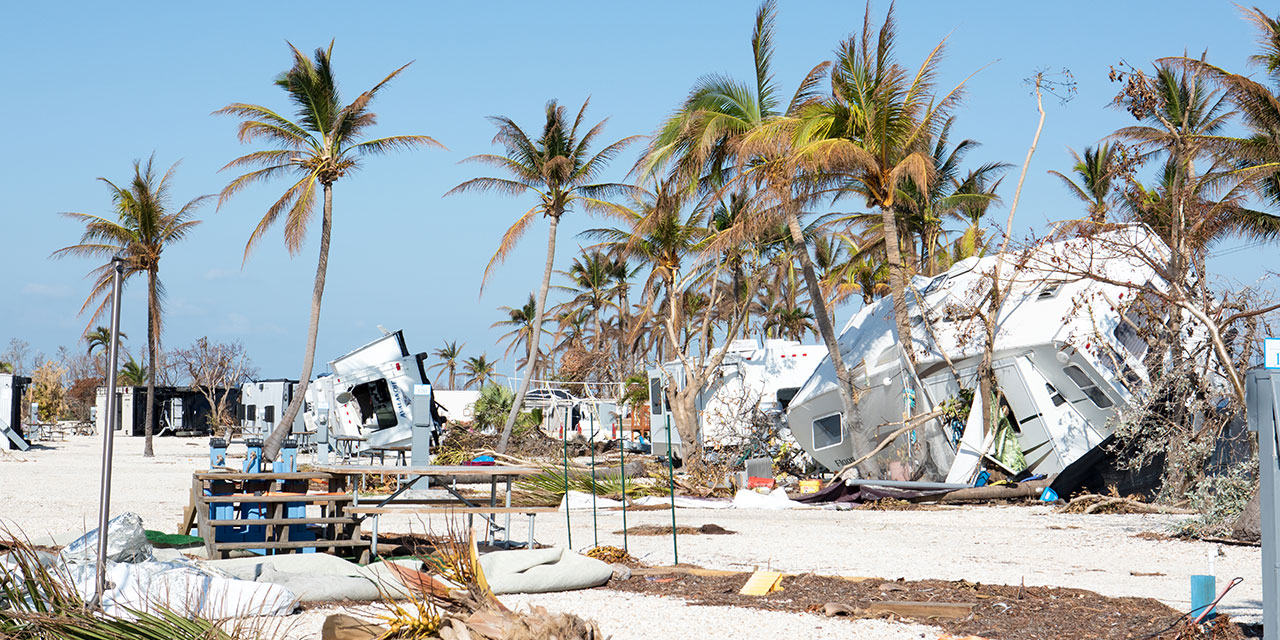Years of protests by small climate-vulnerable nations have finally put critical reform of the global financial architecture high on the agenda of major international organisations and developed market governments.
But the COP28 climate conference in United Arab Emirates in November-December will be the true test of whether the talk leads to action.
“I think the anger and the advocacy of some of the vulnerable countries — particularly small island states — is being noticed,” Biman Prasad, Fiji’s deputy prime minister and minister for finance, told GlobalMarkets.
“Now [we are] firmly on the agenda […] and hopefully a lot of discussion within groups like the Commonwealth […] will feed into this overall attempt to reform the global financial architecture. Many of these wonderful countries are at a cliff edge, and we cannot waste any more time.”
Prasad said Janet Yellen, U.S treasury secretary, had this week invited him to attend a meeting to discuss innovations within the International Monetary Fund, including the Poverty Reduction and Growth Trust, its main vehicle for concessional financing.
Ryan Straughn, minister of finance and economic affairs for Barbados — whose prime minister Mia Mottley has been become a leading voice calling for more support for climate-vulnerable nations — told GlobalMarkets that was now seeing “better coordination in terms of what we have been doing” on climate.
Small island nations, which have barely contributed to greenhouse gas emissions, are particularly vulnerable to more frequent weather disasters, partly because one storm or flood can wipe out swathes of their GDP. But funding that would enable them to invest in becoming more resilient can be hard to come by.
“We need to ensure that climate vulnerability is factored into debt sustainability assessments and recognise the positive impact of climate-related investments,” Baroness Patricia Scotland, secretary-general of the Commonwealth, told a meeting of the group’s finance ministers in Marrakech on Wednesday.
“Countries need the fiscal space to invest in the climate-resilient infrastructure which can ensure their survival and growth, irrespective of historical debt stock.”
She added: “It is neither just nor sensible to prevent vulnerable countries from accessing the support they need because of debts they incur from a problem they have not caused.”
Baroness Scotland called for reform to increase countries’ access to both concessional and non-concessional financing. Developing and vulnerable countries needed cheaper development finance with longer maturities, she argued.
A financial system “engrained with conditionalities and heavy-handed eligibility criteria” was “loading the dice” against countries that most needed developmental finance.
“Business as usual is not an option,” she said. “Business as usual provides insufficient support for the countries which is needed now, it will not help us overcome the grave, entrenched challenge we all face, and it’s not enough for us to attain the Sustainable Development Goals.”
Some steps are seen as helpful, such as the IMF’s Resilience and Sustainability Trust, launched in May 2022, which provides longer term loans than the Fund has ever offered before. But they are not enough to address the climate finance need. The RST, for example, still requires that borrowers meet IMF programme conditionality.
Vulnerable nations are therefore looking to the COP 28 climate conference, taking place in Dubai in December. At COP 27 last year, countries reached — after a decade of debate — an agreement to establish a Loss and Damage Fund to help developing countries with the effects of climate change.
The committee charged with putting this fund into operation issued an update on September 8saying it had made “significant progress”. But its funding remains up in the air.
Fijian minister Prasad said there had to be real action — COP 28 “cannot fail” in this respect. “Success would consist of creation of a Loss and Damage Fund with substantial allocations,” he said, “so that many of these countries which are struggling under debt stress and with an infrastructure deficit can have concessional funding and grants support.
“These are required to build. If you don’t build the infrastructure, you can’t sustain the economy in the future.”
Although climate-resilient infrastructure could become financially sustainable and funded with domestic resources a few years down the line, there is a “huge” funding gap.
“I’m not saying that [the Loss and Damage Fund] will forever be a need,” Prasad said. “But to get there and for it to be sustainable, you need support. That’s what many of these countries are asking.
SOURCE: GLOBAL MARKETS/PACNEWS














